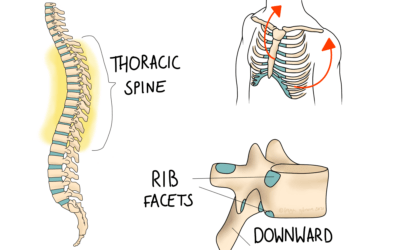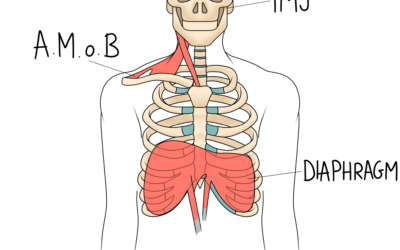Diaphragmatic breathing – not just for meditating!
—————————————————————————————-
What does diaphragmatic (abdominal) breathing do?
Diaphragmatic breathing has loads of benefits for your body. It’s widely used in meditation, which is thought to help manage the symptoms of conditions such as irritable bowel syndrome, depression and anxiety.
Here are more benefits this type of breathing can have:
- Helping you relax, lowering the levels of the stress hormone cortisol in your body.
- Lowering your heart rate and helping to lower your blood pressure.
- It improves your core muscle stability and your ability to withstand more exercise.
- It slows your rate of breathing to expend less energy.
- Improving mood and energy levels.
- Minimising pain.
One of the biggest benefits of diaphragmatic breathing is stress reduction. When you are stressed, your body cannot perform at its normal levels and your immune system cannot work at full capacity. For people who suffer from conditions such as chronic stress, this takes a massive toll on the body’s performance over time. People with chronic stress are extremely likely to develop anxiety or depression. Deep breathing exercises could help you reduce some of the effects of stress and anxiety.
With regular abdominal breathing work, lungs are capable of expanding – increasing your ability to exercise for extended periods of time (whether it’s running or swimming). Over time, practising abdominal breathing can help you to harness the full potential of your pulmonary system to take in and then distribute oxygen throughout your body.
Deep abdominal breathing alters your psychological state, making a painful moment diminish in intensity. For example, your breathing quickens when you are anxious or in pain. Then, taking a deep, slow breath, you experience a calming effect, reducing both stress and pain levels.
The brain makes pain relievers, called endorphins and enkephalins. These hormones are associated with a happy, positive feeling. During deep abdominal breathing, you will oxygenate your blood and trigger the release of endorphins, while also decreasing the release of stress hormones and slowing down your heart rate.
—————————————————————————————-
How to breathe correctly
Diaphragmatic breathing:
Lie on your back and place one hand on your upper chest and the other just under your rib cage. This is so you feel your diaphragm move as you breathe.
Breathe in slowly through your nose so that your stomach moves, you will feel this against your hand. (The hand on your chest should remain as still as possible.)
Tighten your stomach muscles, letting them fall inward as you exhale through pursed lips.
Although this may feel strange at first, diaphragmatic breathing will strengthen your diaphragm and can be extremely useful for anyone suffering from chronic pain or stress.


0 Comments